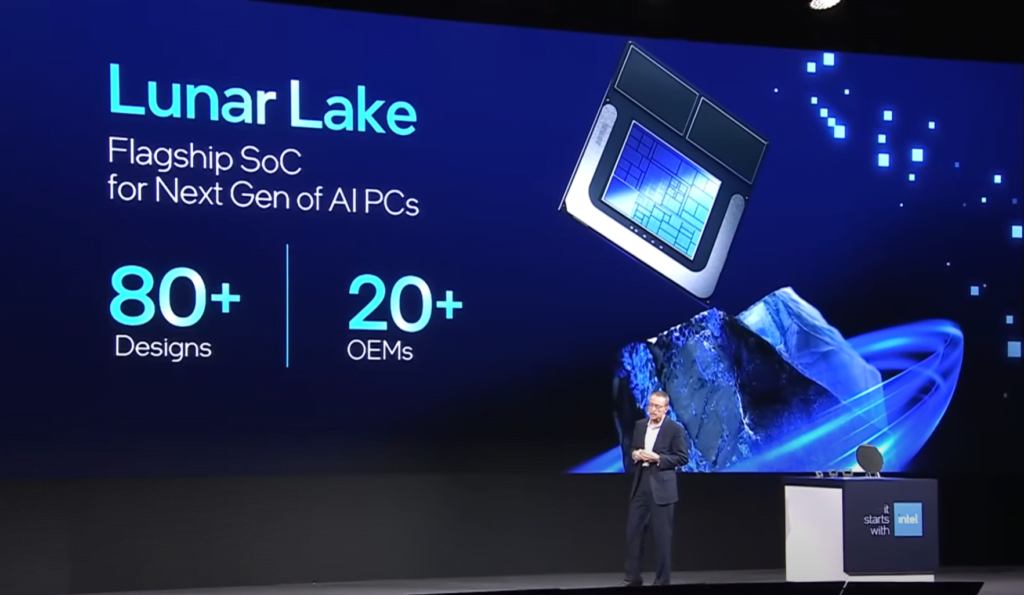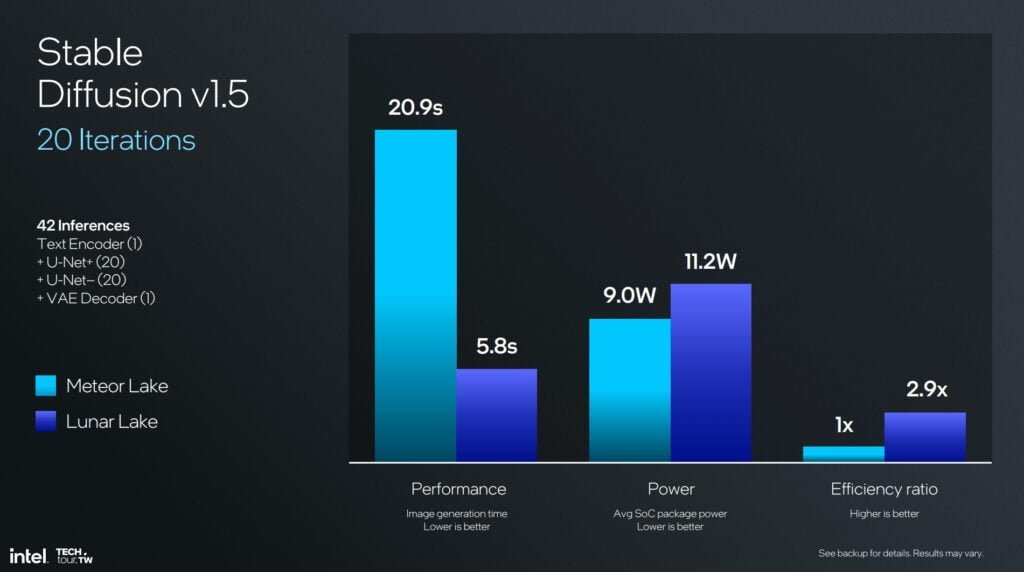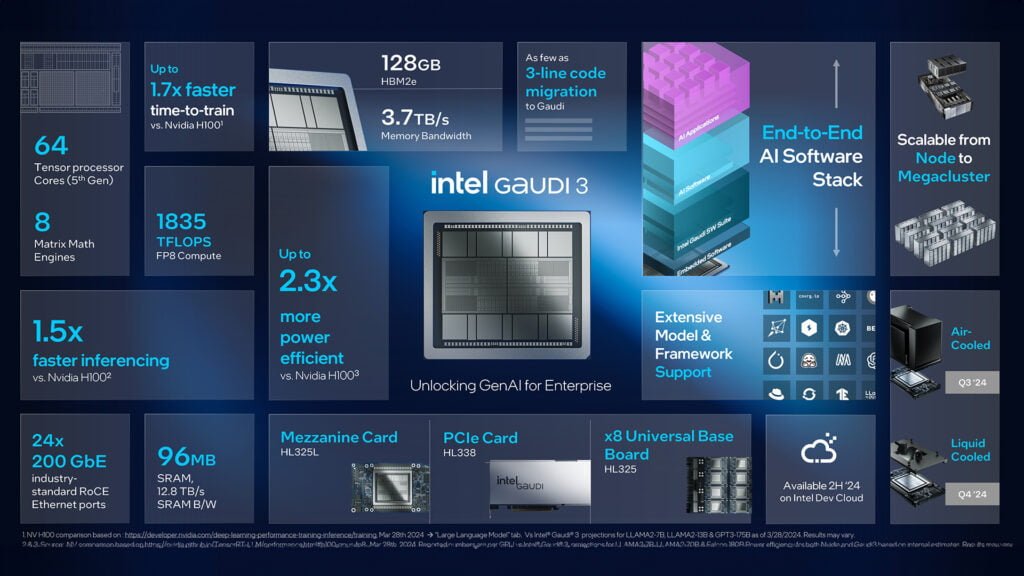Intel unveiled Lunar Lake processors at Computex 2024, designed for thin-and-light PCs. New architecture is a major overhaul to boost x86 power efficiency, aiming for higher CPU and GPU performance, with improve AI compute power.

New Performance-cores (P-cores) and Efficient-cores (E-cores) results in 40% lower system-on-chip power compared to the previous generation. This makes significant improvements to performance and efficiency across the NPU (neural processing unit), CPU (central processing unit) and graphics processing unit when compared with the previous generation.

Better GPU and NPU Performance
New neural processing unit (NPU) that is up to 4 times faster marks significant advancements in generative AI capabilities compared to the previous generation. Additionally, the new Xe2 graphics processing unit (GPU) cores enhance gaming and graphics performance by 1.5 times over its predecessor.

These mobile chips are more power efficient, they reportedly get over 20 hours of battery life on Copilot+ Surface devices.
Delivering core Ultra performance at nearly half the power that we had in meteor Lake.
Intel CEO Pat Gelsinger
When it comes to connectivity, Lunar Lake comes up with Wi-Fi 7, Bluetooth 5.4, PCIe Gen5 and Thunderbolt 4.
Intel® Xeon® 6 family of processors

Intel has introduced the Intel® Xeon® 6 processor family, encompassing both E-core and P-core configurations, designed to cater to diverse use cases and workloads ranging from AI and high-performance computing to scalable cloud-native applications.
The Intel® Xeon® 6 processor, codenamed Sierra Forest, features Efficient-cores and boasts high core density along with exceptional performance per watt. It enables a significant 3-to-1 rack-level consolidation and delivers up to a remarkable 4.2 times increase in rack-level performance and up to 2.6 times improvement in performance per watt compared to 2nd Gen Intel Xeon processors, particularly in media transcode workloads.
Intel plans to launch Intel Xeon 6 processors with P-cores in the third quarter of 2024, promising enhanced performance for demanding workloads such as AI, high-performance computing, image processing, and data analytics.
Gaudi 3 accelerators

Intel has unveiled competitive pricing for its AI kits featuring their Gaudi accelerators. A standard kit comprising eight Intel Gaudi 2 accelerators with a universal baseboard (UBB) will be priced at $65,000, estimated to be one-third the cost of comparable platforms from competitors. Meanwhile, a kit with eight Intel Gaudi 3 accelerators and a UBB will list at $125,000, around two-thirds the cost of similar competitive offerings.
Intel has revealed that six new system providers, namely ASUS, Foxconn, Gigabyte, Inventec, Quanta, and Wistron, will be introducing Intel Gaudi 3 systems to the market. They join existing partners Dell, Hewlett Packard Enterprise, Lenovo, and Supermicro in offering systems featuring Intel’s latest Gaudi 3 accelerators.